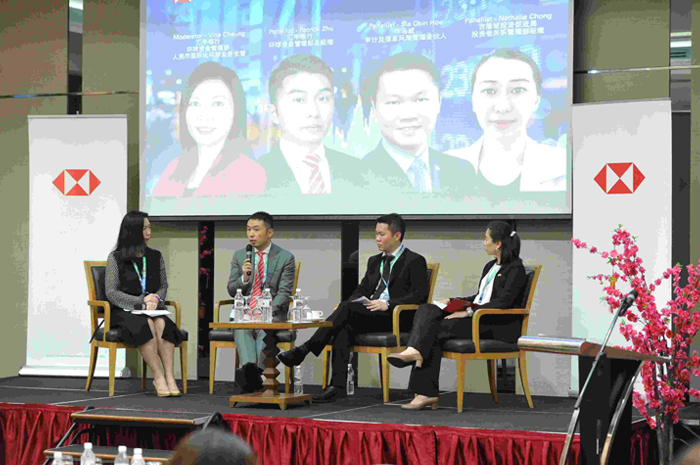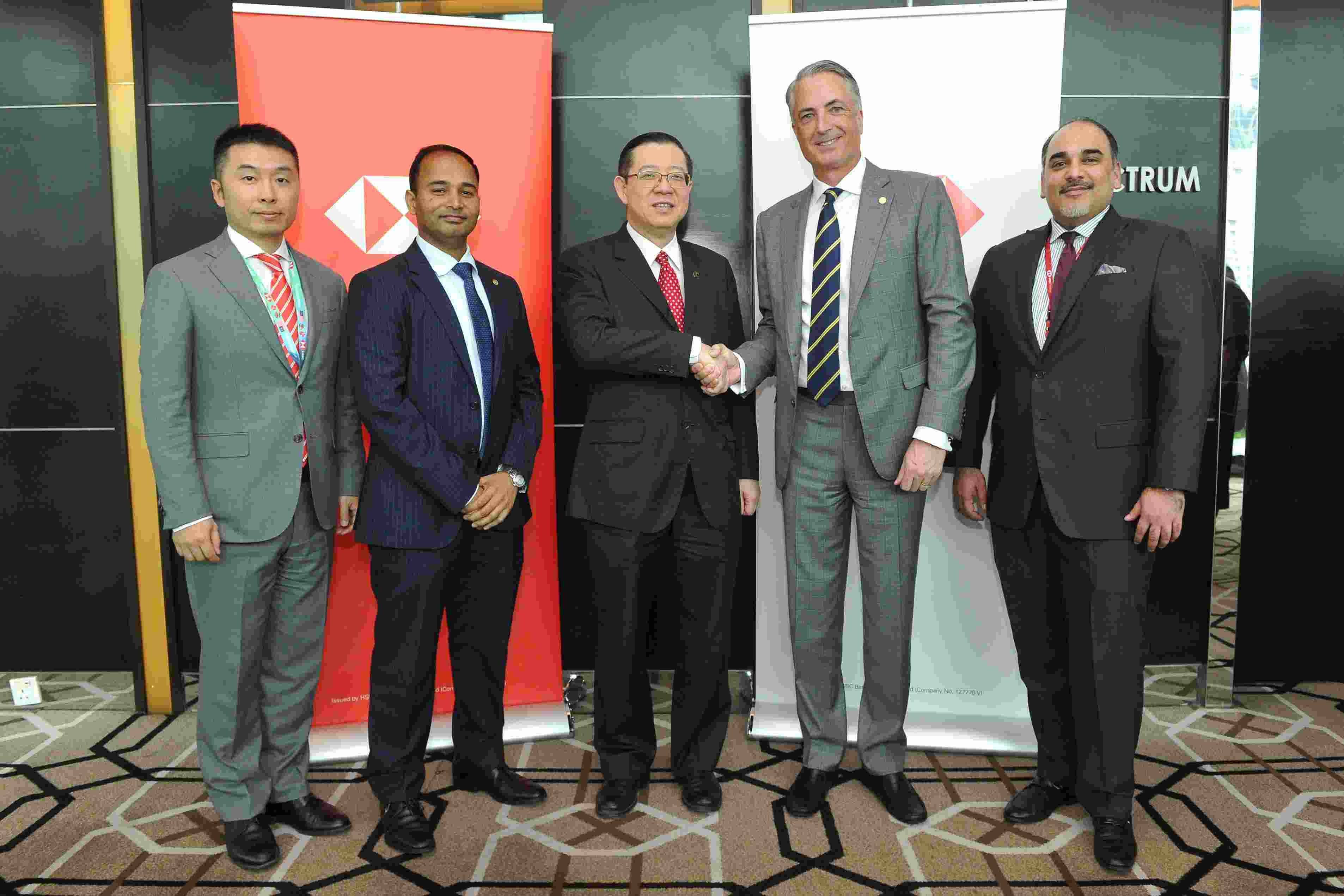- Article

- Managing Cash Flow
- Enable Growth
China’s Belt-and-Road initiative drives big treasury business to Malaysia
Malaysia, being one of the very first countries participating in China’s One-Belt-One-Road (OBOR) push, can benefit significantly in the long run from the initiative.
Malaysia’s Minister of Finance, YB Tuan Lim Guan Eng, feels OBOR will bring more development opportunities to the country and support the connections and logistics between Malaysia and China.
Speaking at the fifth event in HSBC’s Corporate Treasury Forum Series to support Chinese enterprises “go-global” on 18 Nov 2019 in Kuala Lumpur, Mr Eng was bullish on the role the bank can play in helping execute the OBOR strategy.
“Malaysia wants to attract and grow the high-tech industry and we have in place policies and incentives to attract Chinese companies in this sector to invest,” he said. “With the incentive schemes and investment support polices in place, we hope HSBC can play a role to help us be an additional channel to communicate with more Chinese corporates who are looking to invest in Malaysia.”
The unique treasury event, produced in partnership between HSBC and KPMG, highlighted key opportunities available to Chinese corporates in Malaysia. The forum brought together more than 40 Chinese corporations, Malaysian government institutions including the Malaysian Investment Development Authority (MIDA), Invest KL, and the Chinese and Malaysian business communities.
From research carried out surrounding the event, it is evident that the need for treasury transformation results from three main drivers that are fundamentally interconnected. The changes in the economic and corporate environment and developments in the area of IT are so dramatic and significant that they would justify treasury transformation by themselves. In addition to this, treasury is not only subject to the cost pressure that almost all other divisions have been feeling for several years already, but it is increasingly also having to address the question of whether it can make a measurable value contribution. However, this primarily consists of an analysis of the entire financial supply chain, which requires treasury to be integrated into company processes to an even greater extent.
The following key elements of Treasury 4.0 were identified as crucial to drive change:
- Maximum centralisation of data is at its core. Centralisation of the organisation is not a must but rather a key input parameter for strategic effectiveness and organisational / process efficiency.
- Flexibility: Living in a world of the uncertainty requires treasury and hence cash management to respond fast to any kind of change (markets, risk profiles, organisation, business model).
- Integration into the financial supply chain: Decisions, IT-systems, data flow and/or processes elsewhere in the organisation might have a significant impact on cash management; a true end-to-end view allows to overcome this obstacle to highly efficient and effective cash management.
- Exception based management defines the degree of automation. What can be automated should be automated – maybe not today but the foundation has to be laid. Strategic decision making and managing exceptions is all that will remain.
Malaysia has successfully transformed from a predominantly agriculture-based economy in the 1970s to a diversified one. The Central Bank of Malaysia (Bank Negara Malaysia) recently announced the new policy on “liberalisation of foreign exchange administration” to provide greater flexibility and efficiency for businesses to better manage their hedging strategies and credit facilities. The following major tax credits and incentives covering the crucial industry sectors can help Chinese corporates invest in Malaysia:
- Pioneer status: Income tax exemption of 70% or 100% of statutory income for a tax relief period of five or 10 years.
- Investment tax allowance: 60% or 100% of qualifying capital expenditure against 70% or 100% of statutory income for a tax relief period of 5 or 10 years.
- Special incentive schemes, e.g. reinvestment allowance: An allowance of 60% of qualifying capital expenditure for 15 consecutive years from the first year of claim.
- Regional operations, e.g. principal hub: Corporate Income Tax at tiered rates (0%, 5%, or 10%) is given for a period of up to 10 years.
- Special economic regions, e.g. import duty exemption on raw materials, components, machinery and equipment that are not produced locally and used in the manufacturing/ services activity.
“HSBC continues to be a facilitator for international business and the Malaysia-China business corridor is an important and strategic one,” said Stuart Milne, CEO of HSBC Malaysia. “The Corporate Treasury forum that was organised in Malaysia is testament to our commitment to enable Chinese corporates and equip them with the knowledge and network to be successful in Malaysia.”




